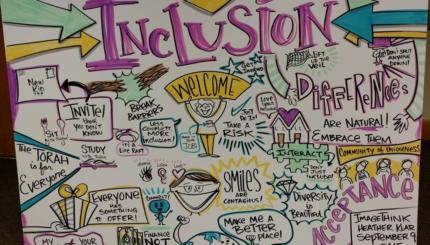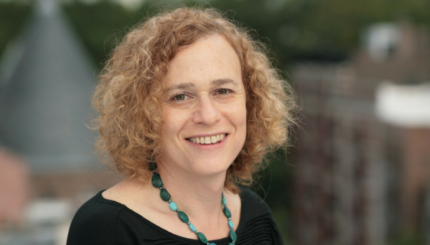Two years ago, I went to the worst seder of my life. It was before I had come out as trans to my family, so I was uncomfortable, depressed and anxious in my masculine dress clothes. By the time the night was over, I was almost in tears. The whole night was like my own personal hell.
Last year, I went to a seder for the first time after coming out. I was happy, enjoying every minute of the beautiful meal with my family. I felt like I was a part of my family, as well as the larger Jewish community in a way I didn’t know was possible. I thought to myself, “This is what it must have felt like to be freed from Egypt.” For the first time, in the words of Hillel, I looked at myself as though I was redeemed from Egypt.
This year, I am incredibly excited for Passover. My whole family is preparing, cleaning the house, getting rid of hametz, and buying enough matzah for all the matzah pizza we’re going to eat. I’m looking forward to eating my mother’s delicious food during our seder and celebrating being freed from oppression.
Passover is meant to be a holiday for every Jew to remember that we were slaves in Egypt. We have rituals centered around this idea, especially that of the Four Children. Everyone – from the person who knows nothing about the Exodus to the most knowledgeable among us – is supposed to be able to form this connection and learn about how we were redeemed from Egypt. Young children, who might not be able to pay attention to the whole seder, are explicitly given a role in Ma Nishtanah, the four questions. The idea that everyone must be included is clearly a vital part of the seder, and when one person feels excluded, everyone suffers. Conversely, when we are inclusive, everyone benefits, and our seder tables are better off. Everyone brings something to the seder with their presence. A new perspective, an interesting conversation, no matter what, they have something to contribute.
The Haggadah text reflects this. Again and again, it uses the word kol, the Hebrew word for all. The first section of Maggid, where we tell the story of Passover, we say, kol dachfin yetei v’yechol, kol ditzrich yetei v’yifsach. In English, this means: Everyone who is hungry, come and eat; everyone who is needy, come and share the Passover meal. Very early on, we make it clear – this seder is for everyone. The texts in the Haggadah exhibit great variety – from songs, to physical symbols of the Exodus, to acronyms and sayings that simplify the story, to rabbinic debates that make it much more complex and deep. Even the Rasha, the wicked child who rejects Judaism and the seder, is still a part of the texts and the ritual, even if they are rejecting it. Everyone can find at least one small thing they love about the seder.
Despite this, many of my LGBTQ friends speak of the long seders with fear. So many people I know dread feeling excluded and hurt by their families and communities during what is meant to be a beautiful communal holiday. Passover becomes a source of panic, not joy. They, like I once did, feel isolated from Judaism and the seder.
This year, Keshet has launched the Kavod Achshav Campaign for Trans Youth – a call for Jewish institutions to speak up and welcome trans youth into their midst. Their goal is to make sure that trans kids, like me and my friends, feel welcome in their Jewish communities. Keshet provides resources and support for organizations that seek to do this. This is an opportunity for Jewish institutions to step up. On a broad scale, every Jewish institution can make the lives of trans Jews, and those of the LGBTQ Jewish community as a whole, better. Everyone can contribute to the ideal of inclusiveness.
This Pesach, before you sit down to enjoy the holiday, ask yourself – am I making my seder table inclusive? By including everyone at our table, we are able to experience true freedom in all its complexity and richness.
Chag Pesach Sameach!



